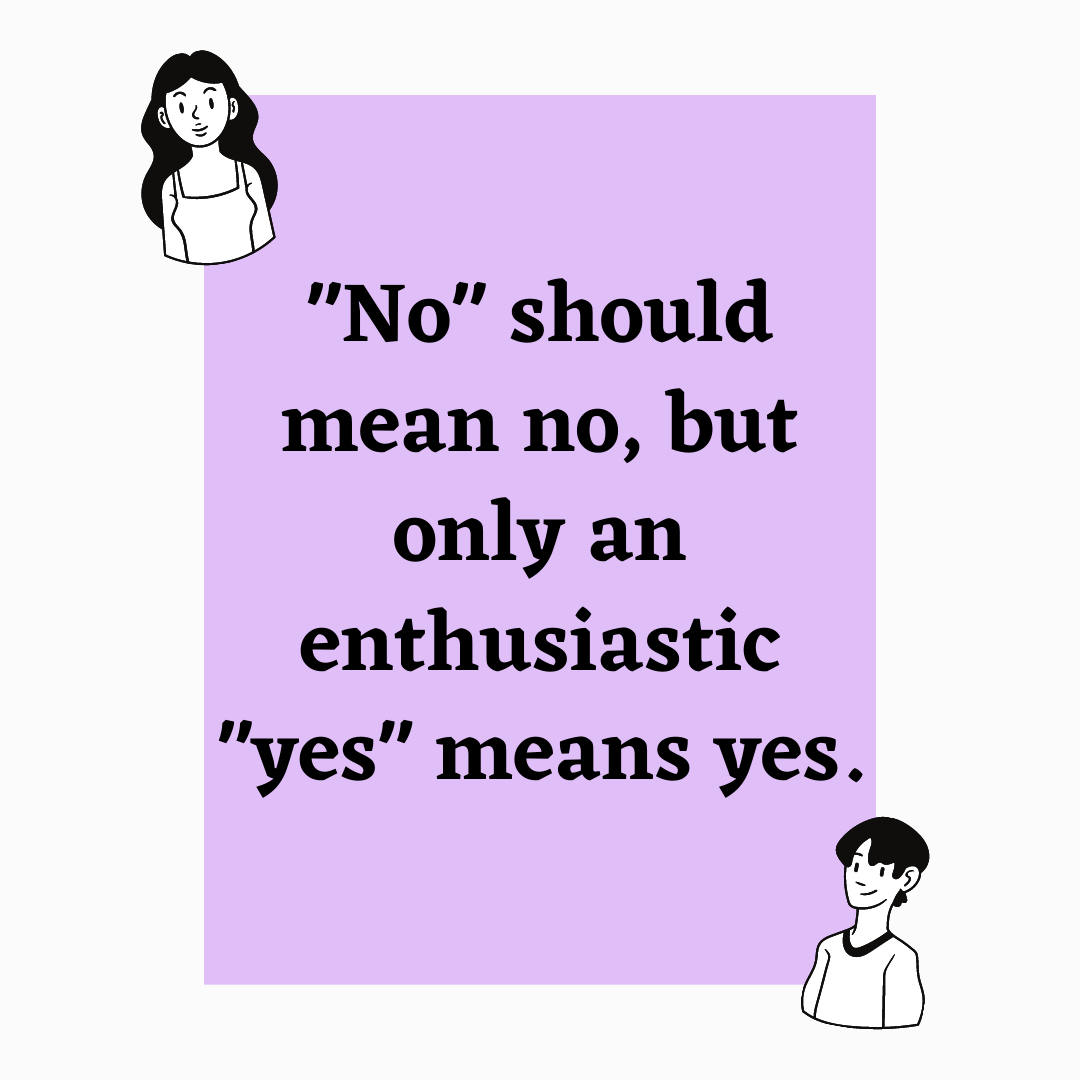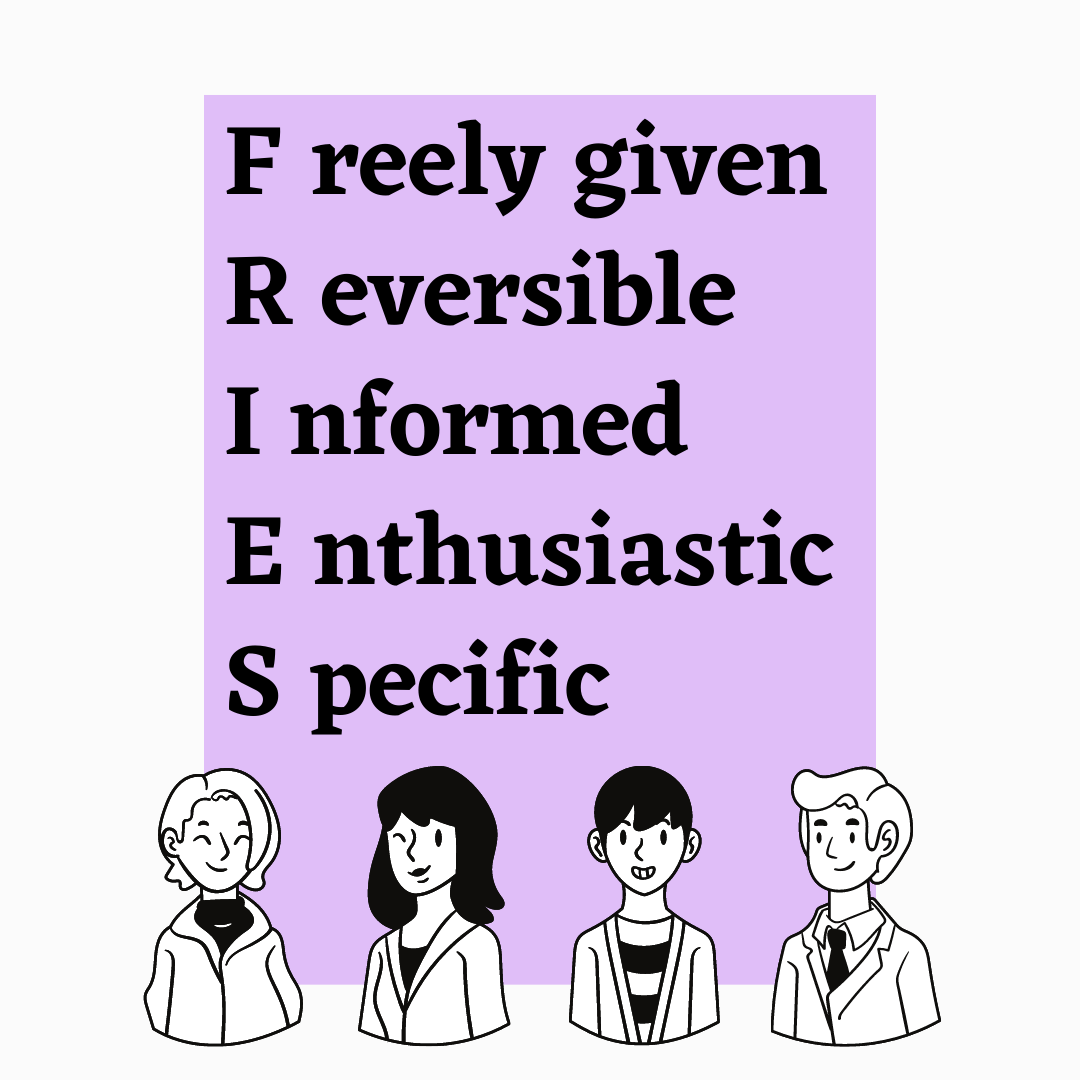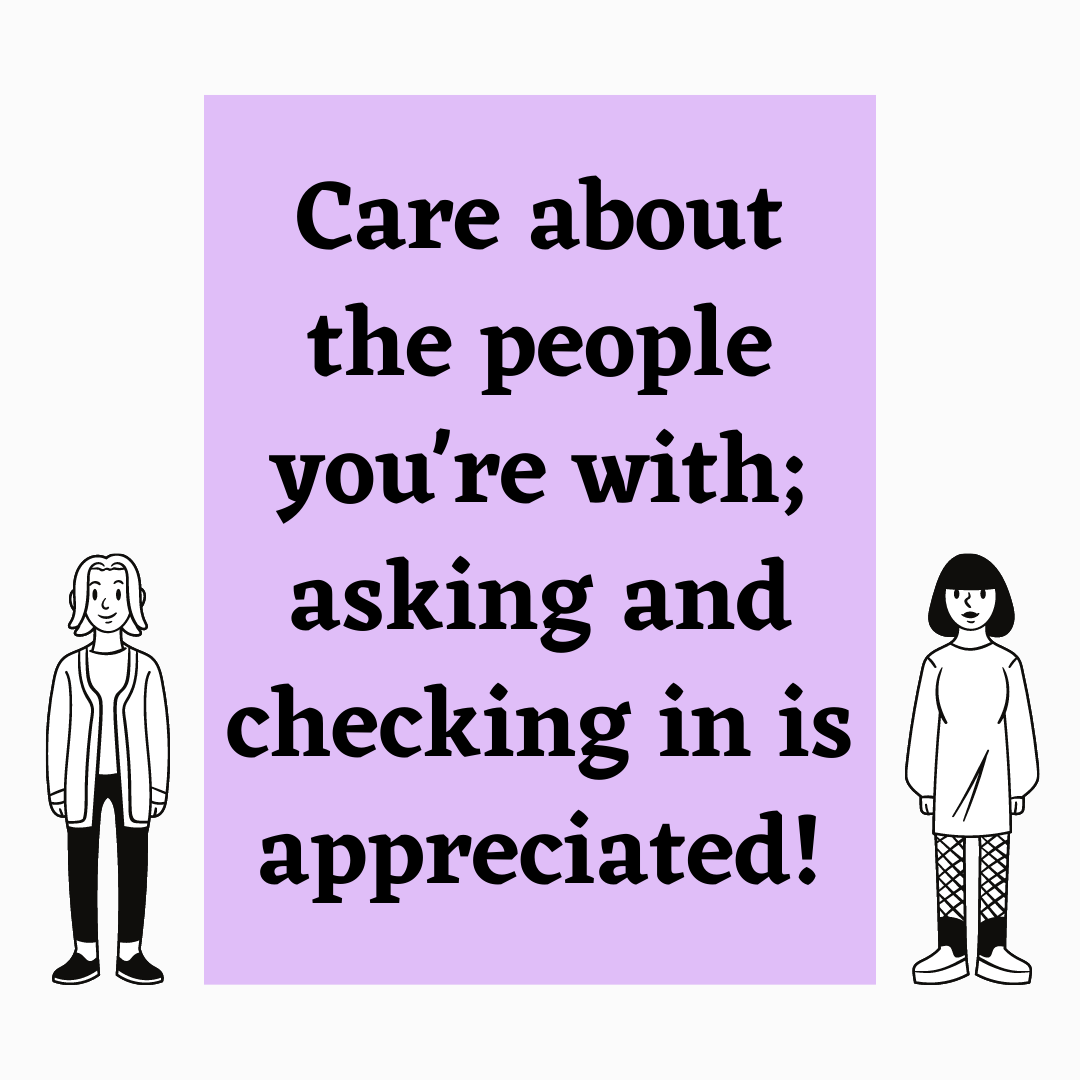In the last weekly wrap, I pointed out that we were seeing many cases of sexual assault and harassment being reported in the media recently. Then came yet another case...

We really need to talk about consent.
What do you know about consent, and how to communicate it? What do you remember hearing when you were growing up? When you were in school?
When I think back, I remember people—from my classmates and other kids, to adults, including teachers—saying things like "silence means consent ah!" I don't recall many discussions about sexual relationships beyond being told that pre-marital sex was bad and might lead to getting all sorts of sexually-transmitted infections (STIs). (According to this narrative, STIs stopped being a problem if you were married.) When it came to consent, we were taught "no means no".
As we can see from the case I screencapped above, even then there are people who don't get it. But the conversation about consent has long evolved; while "no" should mean no, this mantra isn't enough when it comes to talking about consent.
Instead, we should remember this:

When someone tells us "no", we should respect that. But if someone hasn't actually said "no", that doesn't mean that they've given consent. Consent isn't the absence of rejection. It's not something that should be assumed; it's something that needs to be given.
What is an enthusiastic "yes"?
Planned Parenthood uses the acronym FRIES to talk about consent, which I think is a great way to think about it.

This is what it means:
Freely given: The decision to say "yes" was made of your own free will, without anyone coercing, manipulating, or pressuring you, and without the influence of substances like drugs or alcohol.
Reversible: You are allowed to change your mind! For example, if you're already making out with someone, but are uncomfortable with how it's going, you can withdraw your consent and say that you want to stop.
This is not to say that anyone can change their mind after the act has occurred—you can't freely consent to something, do it, then change your mind the next day and say, "I withdraw my consent, that act wasn't consensual after all." What you can do, though, is withold your consent to repeating that act in the future.
Informed: Informed consent is important because you need to know what you're getting into. You can really only consent to something when you have the relevant information that allows you to make your own decision(s) about what you're comfortable with, the risks you may/may not be willing to take, and the consequences of your actions. For example, if someone tells you that they have a condom and will use it, and then it turns out that they don't, then there wasn't proper consent, because your agreement was premised on protection being used.
Enthusiastic: This is something that you actually want to do, not something that you feel like you're expected to do.
This is frequently brought up in sexuality education when talking about consent—which is why I also refer to the "enthusiastic 'yes'"—but there are valid critiques of the term that are worth considering, if you're interested in looking further into this subject. Here's one video:
Nadine Thornhill (in the video above) makes a good point about how there are scenarios in which people might not feel particularly enthused about sex, but are still consenting due to other reasons—they might be sex workers engaging in the act as a business transaction, or couples who might not be particularly excited about having sex at that moment, but are nevertheless consenting because it's something they want to do for the purposes of conceiving a child—in which case the term "enthusiastic consent" seems like too much of a simplification of the situations in which people might willingly and freely choose to have sex. But I think the fundamental concept still holds: this should be something that you actually want to do (whatever your reasons are).
Specific: Consent applies to specific acts, at specific times, in specific conditions. If you consented to kissing someone at their house, it doesn't mean you've consented to sex, nor does it mean that you've automatically consented to kissing them in public or in any other situation.
Think about this way: if consent needs to be informed for you to consider the circumstances before you say "yes" or "no", then your consent can only be for that set of circumstances. If the circumstances change—such as going from a private setting to a public setting—then you have a fresh set of factors to consider. You might eventually still say "yes", but that can't be assumed, and you shouldn't feel pressured into doing it if that's not what you actually want.
It's not as complicated as you might think...
I know that I've used a lot of words so far to spell things out. It's also true that life is complicated, that there are power dynamics and awkward situations, and that communication is not always verbal and as clear-cut as people saying, "no, thank you" or "yes, please" all the time.
But it's precisely because life can be complicated that it's important we take the time to learn and think about these things, and to practise so that we become better equipped and more comfortable with prioritising and communicating consent. And once you start, you'll realise that it really isn't that hard.
The onus is on us to seek consent, not on others to refuse consent. If you're not sure if someone is okay with something, ask. Don't just assume because they didn't say "no". And if they do say "no", respect that right away.
You might have noticed that I haven't said anything about the law so far in this issue. That's because consent isn't about what is/isn't illegal; it's about all the interactions we have with people, about the relationships we build, and our values. We should care about consent not because we want to make sure we don't get investigated/charged for rape/molest/sexual harassment/outrage of modesty, but because we care about treating people right, and not causing harm.
I've also been talking about consent in the context of sexual encounters, but the concepts related to consent discussed in this issue should apply to all aspects of our lives, relationships, and interactions with people. Making sure that your partner consents to sex is important, but so is making sure that your friends are okay with whatever activity is being proposed, even if it's as seemingly innocuous as going out for a meal, or posting their photos on social media. The point is that you don't want to be consciously/unconsciously forcing or pressuring people into doing things that they don't want to do, or aren't comfortable with, or that might actually cause harm to them. For instance, you might not think that posting a photo of a group outing on Instagram is a big deal, but your queer friends who are in a relationship might not have come out to their conservative families yet, and posting that photo publicly might lead to them being found out by their relatives—and all the consequences that might follow—without them being able to choose to be in, and prepare for, such a situation.
No one has all the answers. No one is going to get this right all the time. But that doesn't mean we shouldn't try, and that we can't practise and get better.


